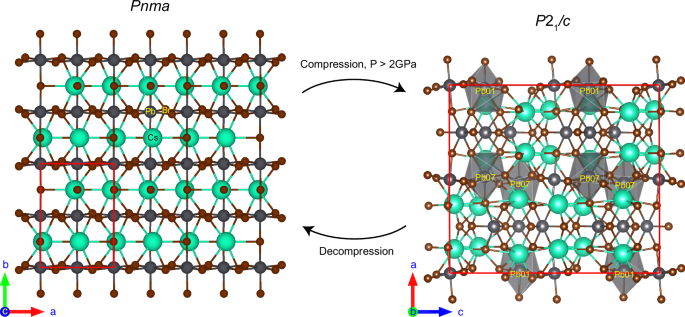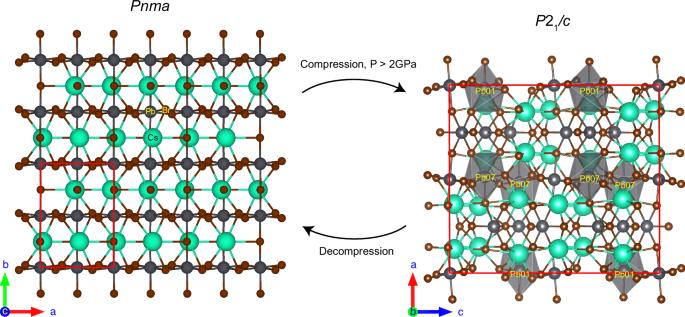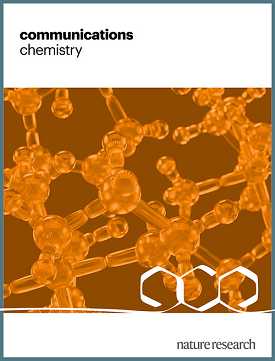Pressure induced structural and electronic band transition in CsPbBr3
IF 5.9
2区 化学
Q1 CHEMISTRY, MULTIDISCIPLINARY
引用次数: 0
Abstract
Cesium lead bromide (CsPbBr3) is a prominent halide perovskite with extensive optoelectronic applications. In this study, we report the pressure modulation of CsPbBr3’s crystal structure and electronic properties at room temperature up to 5 GPa. We have observed a crystal structure transition from the orthorhombic Pnma space group to a new monoclinic phase in the space group P21/c at 2.08 GPa. The structure is associated with ~8% of density jump across the transition boundary. DFT calculations have suggested that the structure transition leads to a change in the electronic band structure, and there is an emergent indirect bandgap at the Pnma-P21/c phase transition boundary at 2.08 GPa. Across the transition boundary, the electronic band gap of CsPbBr3 increased from 2.07 eV to 2.38 eV, which explains its pressure-induced color change. Our study demonstrates the importance of using in-situ crystal structure in the electronic band structure calculations in halide perovskites. CsPbBr3 is a characteristic halide perovskite with extensive optoelectronic application potential. Here, the authors report the pressure modulation of the crystal structure and electronic properties of CsPbBr3 at room temperature and pressures up to 5 GPa.


CsPbBr3 中压力诱导的结构和电子能带转变。
溴化铯铅(CsPbBr3)是一种重要的卤化物包晶,具有广泛的光电应用。在本研究中,我们报告了 CsPbBr3 在室温至 5 GPa 压力下的晶体结构和电子特性的压力调制。我们观察到,在 2.08 GPa 时,晶体结构从正交 Pnma 空间群转变为空间群 P21/c 的新单斜相。该结构与跨越过渡边界的 ~8% 密度跃迁有关。DFT 计算表明,结构转变导致了电子带结构的变化,在 2.08 GPa 的 Pnma-P21/c 相转变边界出现了间接带隙。越过转变边界,CsPbBr3 的电子带隙从 2.07 eV 增加到 2.38 eV,这解释了压力引起的颜色变化。我们的研究证明了在卤化物包晶的电子带结构计算中使用原位晶体结构的重要性。
本文章由计算机程序翻译,如有差异,请以英文原文为准。
求助全文
约1分钟内获得全文
求助全文
来源期刊

Communications Chemistry
Chemistry-General Chemistry
CiteScore
7.70
自引率
1.70%
发文量
146
审稿时长
13 weeks
期刊介绍:
Communications Chemistry is an open access journal from Nature Research publishing high-quality research, reviews and commentary in all areas of the chemical sciences. Research papers published by the journal represent significant advances bringing new chemical insight to a specialized area of research. We also aim to provide a community forum for issues of importance to all chemists, regardless of sub-discipline.
 求助内容:
求助内容: 应助结果提醒方式:
应助结果提醒方式:


